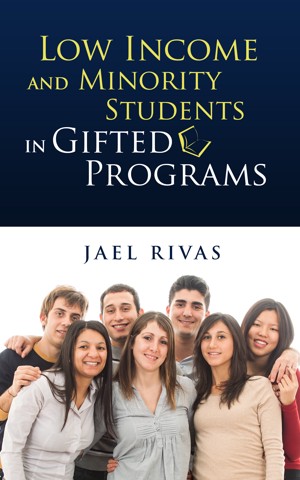Share with Friends
Interview with Jael Rivas
Published 2014-01-01.
Smashwords Interviews are created by the profiled author or publisher.
Books by This Author
Low Income and Minority Students in Gifted Programs
by Jael Rivas
Price:
$2.99 USD.
Words: 3,220.
Language:
American English.
Published: January 8, 2014
.
Categories:
Nonfiction » Education & Study Guides » Special education / gifted, Nonfiction » Education & Study Guides » Multicultural education
Research indicates that low-income and minority students continue to be underrepresented in gifted and talented programs across the United States. This e-book examines the underlying issues preventing equitable representation of low-income and minority students within existing gifted education programs.

